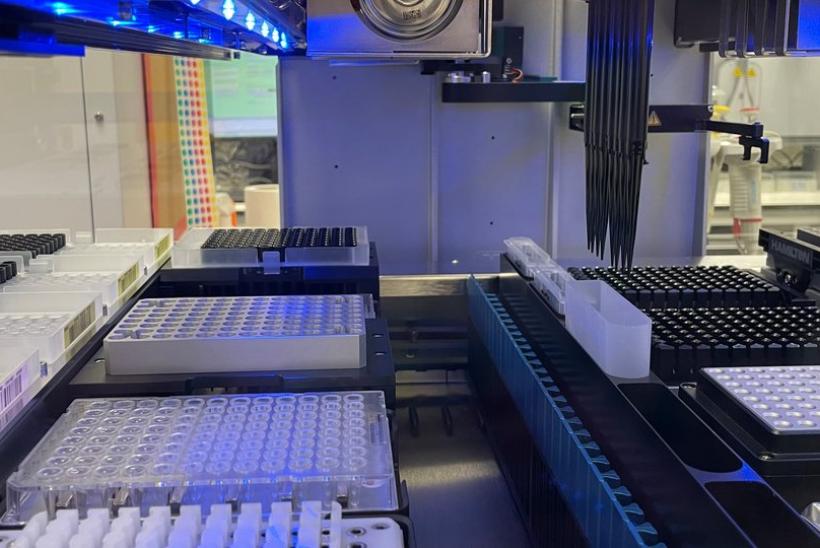Adeno-associated viruses implicated in disease in world-first
A research team spanning Great Ormond Street Hospital and University College London has, for the first time, connected adeno-associated viruses with development of hepatitis in some children, according to a new study published in Nature – the first detailed research investigation into the worldwide outbreak in 2022.
The study describes a huge body of work carried out by teams at GOSH and UCL and many external consortia investigators including ISARIC4C ((International Severe Acute Respiratory and emerging Infections Consortium). In July of last year, teams from England and Scotland announced early results through a Science Media Centre briefing, allaying fears that the global spike of hepatitis cases were directly related to infection with Sars-CoV-2. Since then, much work has been done in a UK-wide collaboration to confirm and strengthen our understanding of this excess of acute severe hepatitis in children. The prior briefing and new papers in Nature are the first example of an adeno-associated virus (AAV) being directly implicated in disease.
These results are reported in back-to-back articles in Nature. One from the London-led team and one from the Glasgow -led collaboration. While the teams worked and carried out their research independently, they have worked closely together in an exemplar of a how the NHS, academic institutions and public health bodies can work together for a common goal.
A third study from the USA was able to confirm the findings.
Adeno-associated viruses and gene therapy
This finding is of particular significance for the gene therapy community, as many gene therapies are delivered using an AAV (including those for Parkinson’s and haemophilia) to get the gene modification into the cells of a patient. Hepatitis has been a known complication of gene therapy for some time and this could suggest the root cause of this link. More research is now needed to unpick this complex relationship and teams are continuing to work together to turn cutting-edge research findings into patient impact and care.
While cases of the ‘mystery’ hepatitis in children have thankfully fallen away, we find ourselves now working with the gene therapy community. Hepatitis is a common complication of AAV gene therapy and we already have some indications that mechanisms underlying this may be similar to those found in the recent spike in cases of hepatitis with an unknown cause.
Professor Judy Breuer who led the research collaboration between GOSH and UCL Great Ormond Street Institute of Child Health
Is gene therapy safe?
Liver involvement in the few weeks or months after AAV gene therapy is an increasingly recognised issue, which is also partially dependent on the age and total viral load administered. In rare cases this could cause complications that require additional investigations and treatments to reduce the risk of serious liver damage. Your team is aware of these complications and of the actions to mitigate liver damage, and will have taken his information into account when discussed gene therapy options with you.
This new research is helping to unpick why this risk exists, and now research teams at GOSH, UCL and beyond can look into how to combat this side effect of an often life-enhancing and -saving treatment.
What are the symptoms of hepatitis after gene therapy?
If your child has received gene therapy at GOSH and you are worries about hepatitis, please consult your doctor and look out for the symptoms of jaundice, a yellow tinge to the skin and other parts of the body, which is most easily seen in the whites of the eyes.
Other symptoms of hepatitis in children include:
- dark urine
- pale, grey-coloured poo
- itchy skin
- muscle and joint pain
- a high temperature
- feeling and being sick
- feeling unusually tired all the time
- loss of appetite
- stomach pain


